Everything You Need to Know About Taoism: The History, Beliefs and Practices
In this blog post, we will explore Daoism - one of the most influential yet least understood philosophical and religious traditions in human history. Daoism is a Chinese philosophy that emphasizes living in harmony with the Tao, or "the Way." Daoists believe that everything in the universe is interconnected and that our natural state is one of balance and simplicity. We will discuss the history, beliefs, and practices of Daoism, as well as some famous Daoists who have made important contributions to this ancient tradition.
What is Daoism?
Daoism is a Chinese philosophical and religious tradition that emphasizes living in harmony with the Tao or "the Way." The Tao is the fundamental order of the universe, which Daoists believe everything is interconnected. Daoists believe that our natural state is one of balance and simplicity. The goal of Daoism is to live in harmony with the Tao in order to achieve health, happiness and longevity.
Daoism has a long and rich history dating back to the sixth century BC. Daoist philosophy was first expounded by the Chinese philosopher Laozi in his book, the Tao Te Ching. Since then, Daoism has evolved and changed over the centuries, but it remains a vibrant and influential tradition in China and around the world.

This image shows the classical octagram of Daoism. In the center is the famous Yin and Yang-symbol. And surrounded by the eight elements of Daoism:
Qian = Heaven
Xun = Wind
Can= Water
Gen = mountain
Kun = Earth
Zhen = Thunder
Li = Fire
Dui = swamp
What do yin and yang stand for?
Daoist philosophy is based on the concept of yin and yang. Yin and Yang are two opposite but complementary forces that make up the universe. Yin is associated with female energy, darkness, coldness, and passive qualities. Yang is associated with male energy, light, warmth and active qualities. Daoists believe that everything in the universe is a balance of yin and yang.
This idea of the interdependence of light and darkness, good and evil, life and death is also found in various other philosophies. The same applies to religions (e.g. Christianity: heaven and hell).
If you are interested in this topic, you should check out this article about Alan Watt's opinion on it.
Interestingly, even psychologists like Carl. G. Jung made this duality a part of their work. Jung, for example, spoke of the male and female energies in humans (called animus and anima). You can learn more about Jung in this article, for example.
What do the eight elements mean in Daoism, you ask?
Qian: Heaven is the source of all things. It is the highest and most powerful force in the universe.
Xun: The wind represents movement and change. It is the force that propels us forward on our journey through life.
Can: Water is the element of feelings and intuition. It is the energy that flows through us and connects us with the world around us.
Gen: The mountain is the element of stability and strength. It represents the foundation on which we build our lives.
Kun: Earth is the element of nourishment and growth. It is the energy that keeps us alive and helps us to thrive.
Zhen: Thunder is the element of passion and creativity. It is the force that inspires us to achieve our goals and dreams.
Li: Fire is the element of courage and willpower. It is the force that drives us to overcome challenges and reach our full potential.
Dui: The swamp is the element of balance and harmony. It represents the peace and tranquility that we seek in our lives.
The eight elements of Daoism are all interconnected and interdependent. They represent the different aspects of our lives and the world around us. Daoists believe that if we understand and balance these forces, we can achieve health, happiness, and longevity.
What is the Dao?
The Dao is the fundamental order of the universe, which Daoists believe everything is interconnected. The Dao is not a god or a religion, it is simply the way things are. Daoists believe that our natural state is one of balance and simplicity.
It is the natural flow or rhythm that governs all things. Daoists believe that everything in the universe is interconnected and that our natural state is one of balance and simplicity. We can achieve this state of harmony by aligning ourselves with the Dao and living by its principles. This could be called the goal of Daoism. However, it could be argued that having a goal contradicts Daoism because it implies a lack of balance.
One of the most famous definitions of the Dao comes from Laozi himself. He said that the Dao is something that cannot be fully understood or explained, it is simply there.
"The Dao that can be told is not the eternal Dao.
The name that can be named is not the eternal name.
The Nameless One is the beginning of heaven and earth.
The named is the mother of ten thousand things.
Ever desireless, one can see the mystery.
If you desire, you can see the manifestations.
These two spring from the same source but differ in name;
this appears as darkness.
Darkness within darkness.
The gate to all mystery.”
- Laozi, Tao Te Ching
We have an article for you in which we discuss Laozi's approach to realizing your potential: "When I let go..." - Lao Tzu about one's own potential
Who founded Daoism?
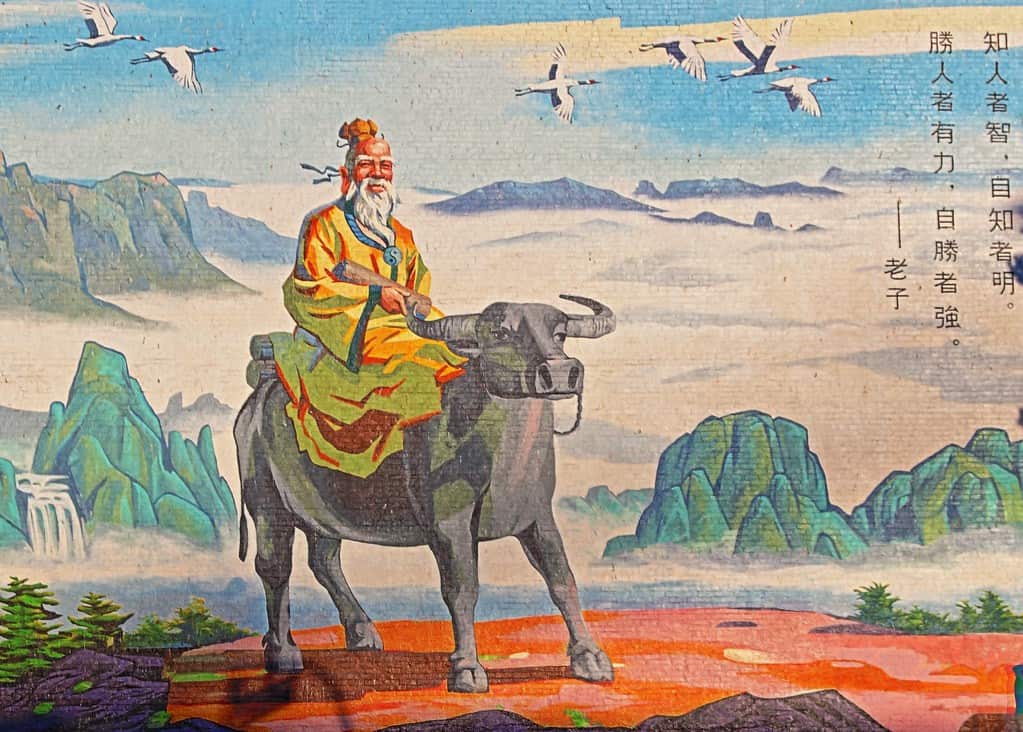
The legendary founder of Daoism is Laozi (or Lao Tzu), a Chinese philosopher who lived in the sixth century BCE. Laozi's seminal work, the Tao Te Ching, outlined Daoist philosophy and remains an influential text in Daoist thought today.
However, there is no evidence that this man ever lived, and Daoism probably developed over a long period of time through the collective wisdom of many different philosophers and sages.
How popular is Daoism?
Daoism is one of the five major religious traditions in China. Exact numbers are difficult to determine, but it is estimated that there are about 20 million Daoists worldwide. Daoism is also becoming more popular in the West, as more and more people are interested in alternative spiritual practices.
What makes a Daoist?
There is no single answer to this question, because Daoism is a comprehensive tradition that welcomes people from all walks of life. However, there are some common characteristics that many Daoists share. Daoists typically believe in living in harmony with nature, following the Dao, and achieving health, happiness, and longevity.
To be a Daoist, you must also know the teachings. Otherwise, you could not practice them. Therefore, the study of Daoist literature is very important. Daoists typically read and recite Daoist texts, meditate on Daoist principles, and practice Daoist rituals and meditation.
Fancy a little story? Learn from the Chinese Farmer.
How do I learn about Daoism?
The absolutely fundamental book you should definitely read is the famous Dao Te King by Laozi - the founder of Daoism. You can find many versions of it online or in bookstores.
This book consists of 81 chapters divided into two parts. The first part, the Tao Ching, consists of verses that teach about the Dao and how to live in accordance with its principles. The second part, the Te Ching, is a more practical guide that describes how to apply the Daoist principles in daily life.
Besides the Tao Te Ching, there are many other Daoist texts that can be studied. The Daozang is a collection of over 1400 Daoist texts that includes works on philosophy, religion, medicine, alchemy, astrology, and more.
If you are just starting out and want to learn more about Daoism, we recommend a few good resources to get you started. For a general overview of the history and beliefs of Daoism, we recommend:
- Daoism: A Beginner's Guide by James Miller.
For a more in-depth look at Daoist philosophy, we recommend:
- The Tao of Pooh and The Te of Piglet by Benjamin Hoff.
And for a Daoist approach to self-care, we recommend:
- The Way of Qigong by Kenneth S. Cohen.
Another way to learn about Daoism is to participate in its communities and practices. Daoist temples are open to the public and often offer classes in Daoist meditation, qigong, and other practices. You can also find Daoist groups that meet regularly for discussion and fellowship.
You could also try attending a Daoist retreat, which is usually held in a natural setting such as the mountains or forests. These retreats offer a great opportunity to learn about Daoist philosophy and practice in a supportive environment.
Example article: Lao Tzu: Why You Shouldn’t Care What Others Think
Who was a famous Daoist?
Laozi is a famous Daoist who lived in the sixth century BC. He is best known for his book, the Tao Te Ching, which is the foundation of Daoism. Laozi's philosophy emphasizes that we should live in harmony with the Dao and lead a balanced and simple life.
Another famous Daoist is Zhuangziwho lived in the fourth century BC. Zhuangzi was a prolific writer and his work has influenced Daoist thought. His most famous book, the Zhuangzi, contains many stories and parables that illustrate Daoist principles.
Zhuangzi: the pursuit of happiness - philosophy simply explained
Liu An is one of the most famous Daoists of all times. He was a prince of the Han Dynasty who lived from 156-87 BC. Liu An is known for his contributions to Daoist thought, including the important Daoist text Huainanzi. He was also a skilled alchemist and is credited with the development of Daoist alchemy.
Liu An's work helped shape Daoism into the tradition we know today.
How to live a Daoist life?
There is no single answer to this question, because Daoism is a flexible and individual tradition. However, there are some general Daoist practices that can help us live in harmony with the Dao. These include meditation, qigong, tai chi, feng shui, and a healthy diet. By integrating these practices into our lives, we can align ourselves with the Dao and achieve health, happiness and longevity.
That's it for now. We hope we could bring you closer to this fascinating philosophy!

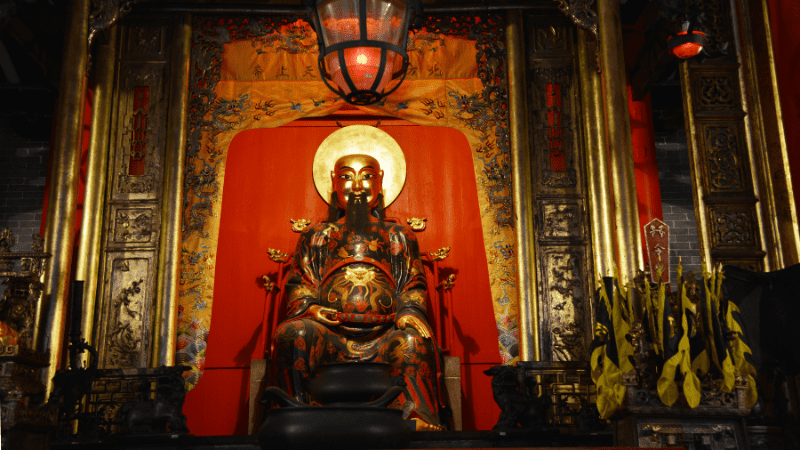
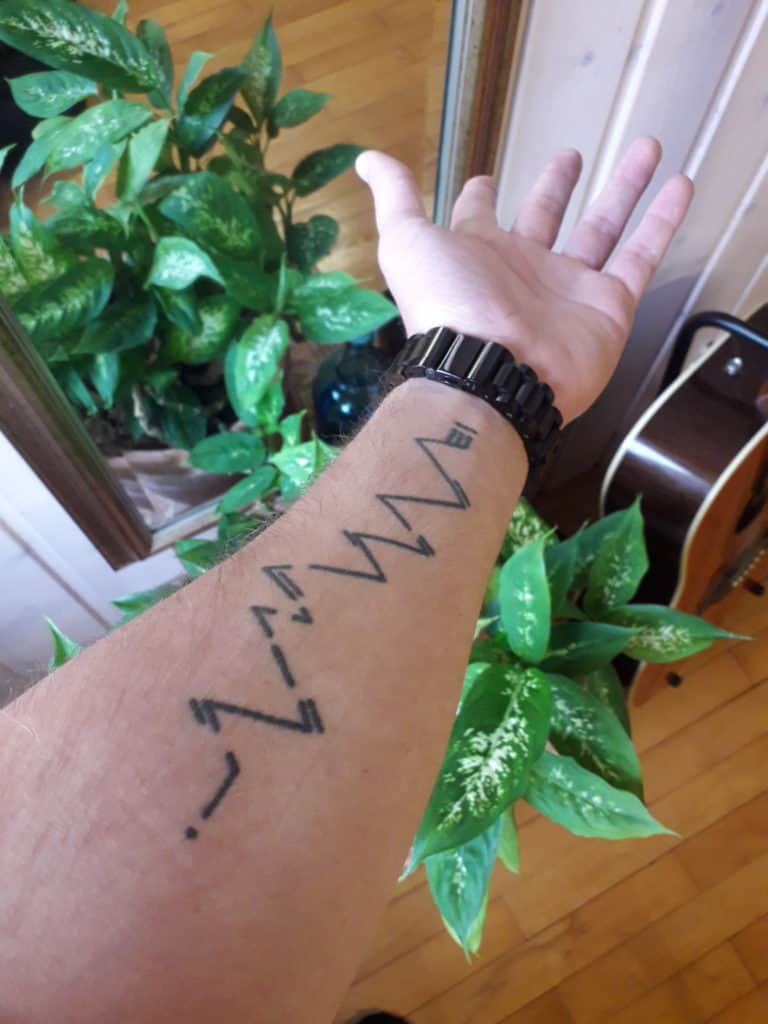

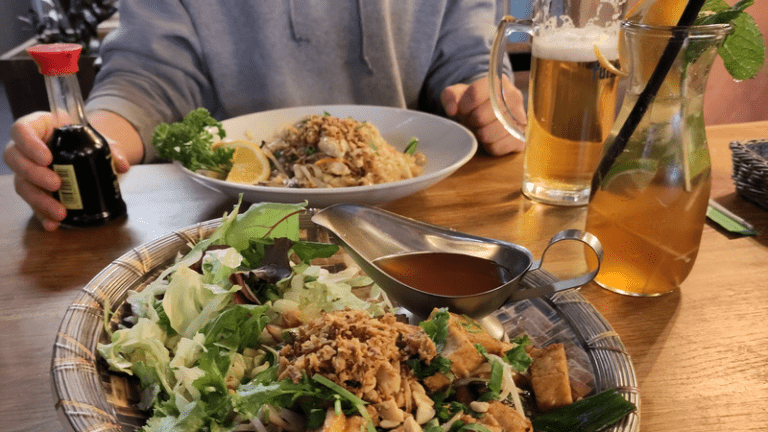

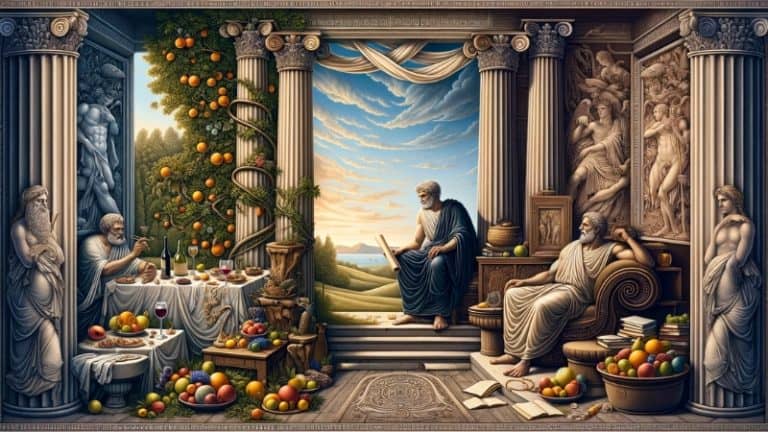
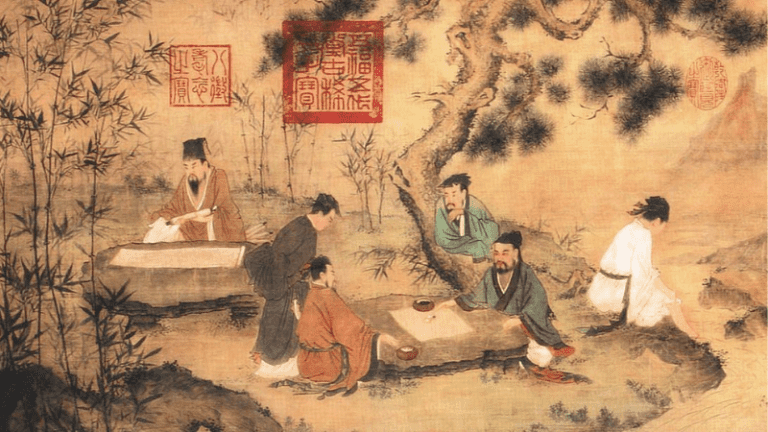
Nuper Publius in forum contendit.
Ex nihilo nihil fit.
Nihil in terra sine causa fit.